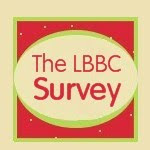As a young girl growing up in dos mundos - my Spanish world at home, and my English world at school - my actions, both positive and negative, were met with short sayings meant to teach me some sort of lesson. When I wouldn't get up from bed to get ready for school, my mother would say "A quien madruga, Dios le ayuda". She wanted me to hop out of that warm bed, you know, to catch that worm.
When I became too friendly with kids who were up to no good, Mami warned wisely, "Dime con quién andas, y te diré quién eres" - tell me who you hang out with, and I'll tell you who you are. Mami would sigh, "De tal palo, tal astilla" when I became moody, just like my dad. And during tough times, when she managed to stretch a pot of rice and some vegetables to feed our family of six - "Cuando hay hambre, no hay mal pan". My father often repeated the Quechua phrase "Ama sua, ama kella, ama llulla." This moral lesson from the Incas advised "Don't steal, don't lie, don't be lazy."
At school, it was no different. Important lessons were often taught in short phrases. Do unto others. Honesty is the best policy. Clothes do not make the man.
As a classroom teacher, I recognize the value in these small gems. There is much wisdom, culture, and language to be learned in these refranes and dichos. Mi primer libro de dichos/My First Book of Proverbs by Ralfka Gonzalez and Ana Ruiz is a book I go to year after year with my students. The pages display favorite sayings in Spanish and English, with colorful, folky illustrations to accompany each. A favorite activity that invites much creativity and thought is to have my students select a dicho that they've heard, and to have them write, in their own words, what it means. Along with their writing, they are invited to illustrate a literal interpretation of the saying.
The study of idiomatic expressions, proverbs, and sayings is an important part of language learning and awareness. Often, as native speakers of a language, we take these words for granted, not stopping to consider what they mean, or where they come from to begin with. For more on these jewels, check out Only the Best/Sólo lo mejor - which contains 100 quotations and proverbs in Spanish, with translations. As well, you might want to have on hand the bilingual Dictionary of Proverbs.
And in keeping with the LBBC's celebration of El día de los niños, El día de los libros, here is one of my favorite quotations, or frases célebres:
Yo siempre me había imaginado al Paraíso como una especie de biblioteca. ~Jorge Luis Borges
Tuesday, April 20, 2010
Subscribe to:
Post Comments (Atom)

















0 comments:
Post a Comment